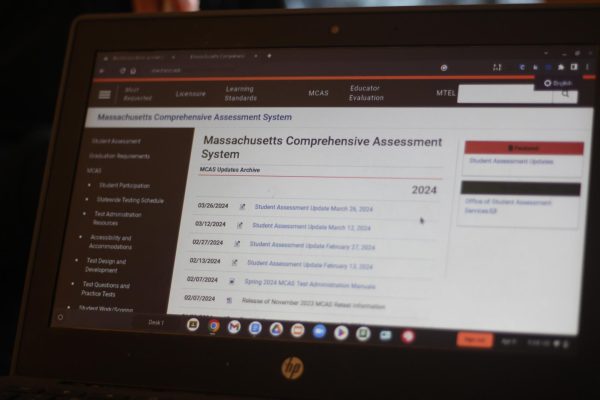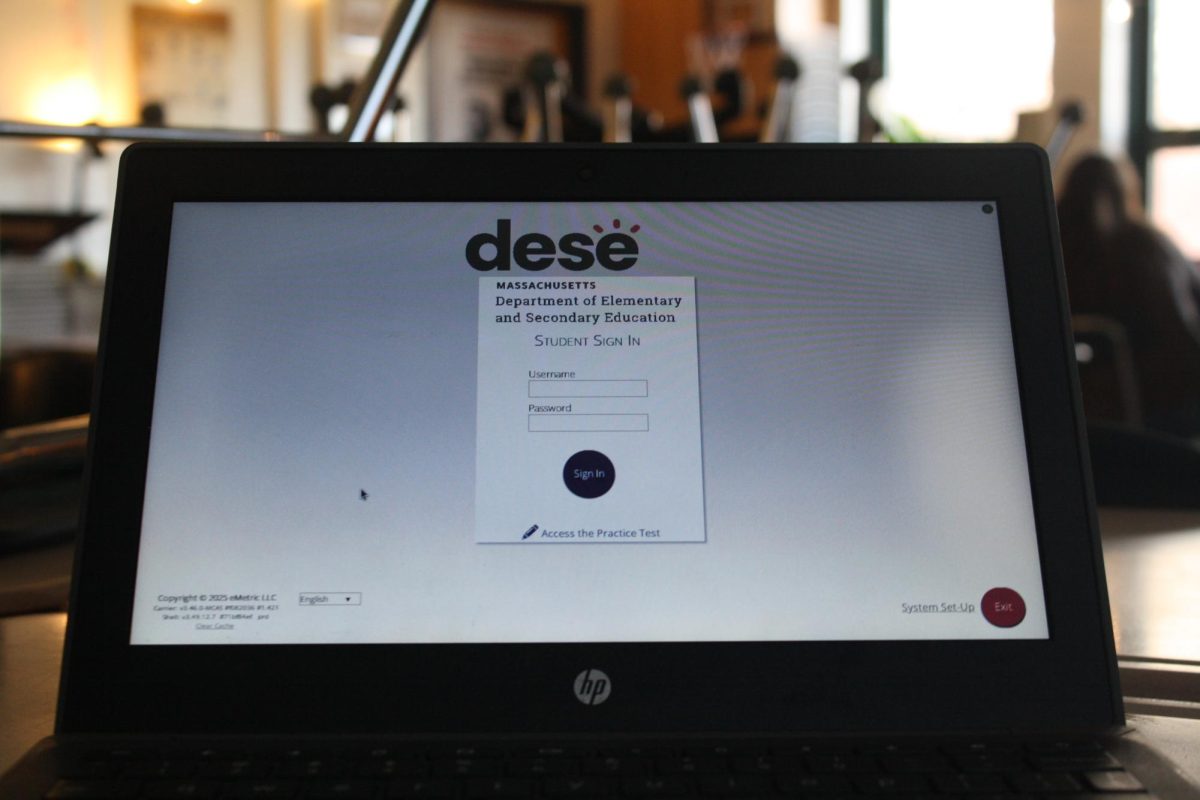With MCAS testing right around the corner for the high school’s underclassmen, discussion about a ballot proposal to drop the MCAS graduation requirements has spiked. These tests usually bring concerns about whether students have been prepared enough and whether or not they will pass and be able to graduate. Depending on how voters respond in November, this test’s heavy influence on students and their learning may change.
Math department chair Dianne Young said she is in favor of dropping MCAS as a graduation requirement.
“I’ve never felt that it was the right instrument for that,” Young said “Any impact it would have on learning actually wouldn’t be positive because I think we spend too much time worrying about testing and too much time having students in testing and that’s less time spent learning.”
MCAS is the state-mandated test that all public school students must take from third to eighth grade. Because Massachusetts has chosen to require students to pass exams in English, math, and science in order to earn a high school diploma, the stakes are high.
As a result, parents, teachers, and activists have been busy trying to get the graduation requirement dropped.
“The Massachusetts Teachers Association are the ones who have been collecting signatures to get this on the ballot,” said English teacher Amy Foley, president of the South Hadley Education Association. “We got a ton of signatures in the fall, and in May, the MTA will work to get additional signatures from people.”
 The proposal to drop MCAS as a graduation requirement has generated a variety of opinions, with many agreeing it should be removed due to how much student learning time it consumes and how it prevents teachers from offering a more diverse curriculum. In contrast, others do not support the proposal, arguing it could reduce the standards for graduation.
The proposal to drop MCAS as a graduation requirement has generated a variety of opinions, with many agreeing it should be removed due to how much student learning time it consumes and how it prevents teachers from offering a more diverse curriculum. In contrast, others do not support the proposal, arguing it could reduce the standards for graduation.
English department chair Tina Lesniak said that dropping the MCAS graduation requirement could result in a broadening of the curriculum and make learning more creative.
“Right now we do a significant amount of MCAS prep to make sure students have the test-taking skills necessary to do well on the MCAS,” Lesniak said. “Without that pressure, we could focus more time on content knowledge, which would ultimately help all students.”
According to Foley, teachers in Western Massachusetts have been highly in favor of dropping the requirement.
“All of the local teacher unions out here did really well in collecting signatures, and our association, the South Hadley Education Association, was in the top 20 unions in the state for collecting signatures to get this on the ballot,” Foley said. “Western Mass is really leading the charge to get this.”





